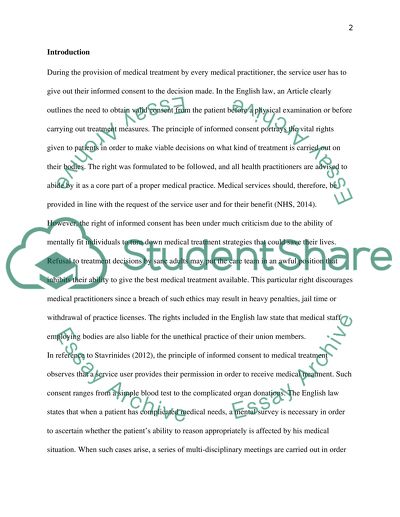Cite this document
(“What rights in English law do adults with decisional capacity have in Essay”, n.d.)
What rights in English law do adults with decisional capacity have in Essay. Retrieved from https://studentshare.org/law/1693823-what-rights-in-english-law-do-adults-with-decisional-capacity-have-in-relation-to-medical-treatment-and-do-these-give-too-much-scope-for-refusing-important-treatment
What rights in English law do adults with decisional capacity have in Essay. Retrieved from https://studentshare.org/law/1693823-what-rights-in-english-law-do-adults-with-decisional-capacity-have-in-relation-to-medical-treatment-and-do-these-give-too-much-scope-for-refusing-important-treatment
(What Rights in English Law Do Adults With Decisional Capacity Have in Essay)
What Rights in English Law Do Adults With Decisional Capacity Have in Essay. https://studentshare.org/law/1693823-what-rights-in-english-law-do-adults-with-decisional-capacity-have-in-relation-to-medical-treatment-and-do-these-give-too-much-scope-for-refusing-important-treatment.
What Rights in English Law Do Adults With Decisional Capacity Have in Essay. https://studentshare.org/law/1693823-what-rights-in-english-law-do-adults-with-decisional-capacity-have-in-relation-to-medical-treatment-and-do-these-give-too-much-scope-for-refusing-important-treatment.
“What Rights in English Law Do Adults With Decisional Capacity Have in Essay”, n.d. https://studentshare.org/law/1693823-what-rights-in-english-law-do-adults-with-decisional-capacity-have-in-relation-to-medical-treatment-and-do-these-give-too-much-scope-for-refusing-important-treatment.


